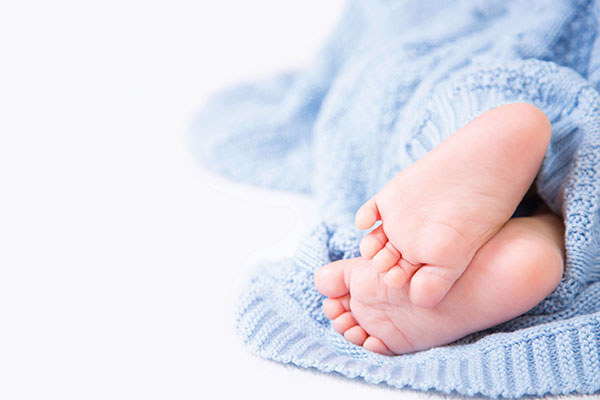Cancer & Your Fertility
Answers to Your Most Pressing Questions
by Terri L. Woodard, MD
Cancer-related infertility is a significant cause of personal distress for many people who have faced cancer. Just talking about your fertility risks and fertility preservation options may help you cope with it better.
You may have a limited window of opportunity to pursue fertility preservation methods that can help improve your chances of having a biological child. Understanding and having some control over your reproductive future is empowering for a lot of people. Therefore, it’s important to talk with your doctor about how your cancer treatments may affect your fertility – and what you can do about – soon after you’ve been diagnosed with cancer.
Which cancer survivors should be concerned about fertility?
Any man or woman of reproductive age or younger who may want to have children in the future should talk with their doctor about fertility prior to starting any cancer treatment that could make him or her infertile. If your doctor doesn’t mention the topic, don’t be afraid to bring it up yourself! This is important because fertility preservation should be done BEFORE you start cancer treatment.
Preserving your fertility does not mean that you must become a parent. It just keeps the possibility open.
Even if you don’t think you want to have children in the future, you should still discuss your risk for infertility with your doctor because you can’t always predict how you might feel in the future. Preserving your fertility does not mean that you must become a parent. It just keeps the possibility open.
When should I talk to someone about my fertility concerns?
You can talk with your healthcare provider any time you have concerns, but it is best that you have these conversations before starting cancer treatment. The sooner you discuss fertility preservation with your doctor, the more options you may have available to you.
In most cases, fertility preservation should not be done once cancer therapy has started because the eggs and sperm are genetically damaged by chemotherapy and radiation. However, there may still be opportunities for family building after cancer treatment, ranging from getting pregnant naturally to taking fertility medications, to using donor eggs or sperm, to adoption.
Unfortunately, it is not possible to accurately predict who will become infertile after cancer treatment.
How might cancer treatment affect my fertility?
The effect of cancer treatment on fertility depends on several factors, including your age, type of treatment, dose, and your current fertility status. Several types of treatments can affect fertility:
• Radiation – Radiation to the abdomen and pelvis can damage fertility, depending on its type and dose. The ovaries and testes are extremely sensitive to radiation and can be damaged even with low doses. For women, especially, the older a woman is, the more damage radiation causes. Radiation to the brain that affects the pituitary gland can also affect fertility by stopping the hormone signals that cause the ovaries to mature eggs and the testes to make sperm.
• Chemotherapy – Some chemotherapies affect fertility more than others, with alkylating agents such as cyclophosphamide having a higher risk of causing fertility. The dose of chemotherapy also matters, as does the age of the person undergoing treatment, with older women experiencing more damage than younger women. Some agents are thought to have a lower risk of fertility. For some chemotherapy drugs (especially newer ones), we don’t know the risk yet. Unfortunately, it is not possible to accurately predict who will become infertile after cancer treatment, so if fertility is important to you, you should consider fertility preservation.
• Surgery – Surgery that involves removing reproductive organs can cause infertility. Brain surgery that may damage the pituitary can also cause infertility.
The sooner you discuss fertility preservation with your doctor, the more options you may have available to you.
What are my options for fertility preservation?
Several fertility preservation options are available for both men and women. Fertility preservation should be done prior to starting any cancer treatment that might damage fertility.
• For Males: For men and boys who have gone through puberty, sperm banking is the recommended fertility preservation option. Sperm banking involves freezing your sperm for use in the future. Sometimes, you may need to give more than one sample if the quality is poor or if there are low numbers of sperm. This frozen sperm can be thawed and then used for intrauterine insemination (putting sperm inside a woman’s uterus) or for in vitro fertilization, also called IVF. There is no limit to how long sperm can remain frozen.
For young boys, testicular tissue cryopreservation is the only method of fertility preservation that is available, since prepubescent boys cannot produce mature sperm. For this procedure, a piece of testicular tissue is removed and frozen. Once the boy reaches adulthood, doctors may be able to thaw the frozen tissue and place it back into his body so it starts making sperm. This method is experimental, and no one has had children using this method yet.
• For Females: Women have several options for fertility preservation, including egg or embryo cryopreservation, ovarian tissue cryopreservation, ovarian transposition, and ovarian suppression. For women with gynecologic cancers, sometimes fertility can be preserved by pursuing more conservative treatments.
Egg cryopreservation and embryo cryopreservation are the recommended options for fertility preservation in women. They require that you undergo ovarian stimulation, where you take fertility medications to cause your ovaries to develop multiple ovarian follicles that contain eggs. Once the follicles reach a size that indicates maturity, you are given another drug to cause ovulation. However, before you ovulate, you will be taken to an operating room for a transvaginal oocyte retrieval, which is a procedure in which the eggs are removed from your ovaries. This is done as an outpatient procedure, usually under anesthesia.
If you don’t have a partner or sperm donor, or don’t want to freeze embryos, your eggs can be cryopreserved. If you do have a partner or donor and want to cryopreserve embryos, your eggs will be fertilized with sperm from your partner or sperm donor to make embryos, and the embryos are frozen. The process from starting fertility medication to oocyte retrieval takes approximately 12 to 14 days.
For young girls, ovarian tissue cryopreservation is the only method of fertility preservation that is available since prepubescent girls do not produce mature eggs. For this procedure, a piece of ovarian tissue (or an entire ovary) is removed and frozen. Once the girl reaches adulthood, doctors can thaw the tissue and place it back into her body so it starts maturing eggs. This method is experimental, but approximately 100 women have had children from using it.
When a woman must have radiation to her pelvis, an ovarian transposition can be performed to try to preserve fertility. During this procedure, a surgeon will move the ovaries out of the radiation field, lowering the amount of radiation the ovaries are exposed to during radiation therapy. This may help make it more likely for you to be able to have a child in the future. However, you will not be able to get pregnant on your own and will need IVF.
Ovarian suppression is another fertility preservation option for women, although it is experimental; research is not clear on whether it works. For ovarian suppression, postpubertal girls or women are given injectable medications called GnRH agonists that shut down the ovaries and place them into a temporary “menopause-like” state. It is thought that ovaries that aren’t active and that have less blood flow to them are more resistant to chemotherapy.
It is important to stress that NONE of these options guarantee a pregnancy, but they can increase your chances of having a child if you become infertile after cancer treatment. In addition, sometimes fertility preservation cannot be done because there is not enough time, it is too expensive, or a person is too sick. Even if it isn’t possible for you to preserve fertility before cancer treatment, you may have other opportunities to do so in the future. And even if you do end up becoming infertile due to cancer treatment, there are other ways to build a family, including using donor sperm, eggs, or embryos; seeking out a gestational carrier; or pursuing adoption.

Dr. Terri Woodard is an associate professor in the Department of Gynecologic Oncology and Reproductive Medicine at MD Anderson Cancer Center and an assistant professor in the Division of Reproductive Endocrinology and Infertility at Baylor College of Medicine, both in Houston, TX. She is a doubly board-certified reproductive endocrinologist and infertility specialist with expertise in oncofertility. In 2013, Dr. Woodard established the MD Anderson Oncofertility Program, which offers fertility counseling prior to cancer treatment, as well as comprehensive fertility preservation and family-building services for men and women whose reproductive potential may be or may have been affected by cancer or its treatment.
If you are interested in exploring your fertility preservation options, your oncology provider may have a reproductive specialist that they can refer you to. If not, you can find a fertility specialist through the Society for Assisted Reproductive Technology website (sart.org), which has a list of clinics nationwide. Other reliable sources for fertility information include ReproductiveFacts.org, which is a website hosted by the American Society for Reproductive Medicine, and Livestrong.org. In addition to providing general information about cancer and fertility, Livestrong offers a financial aid program that helps cancer survivors with the cost of fertility treatment.
This article was published in Coping® with Cancer magazine, March/April 2019.


